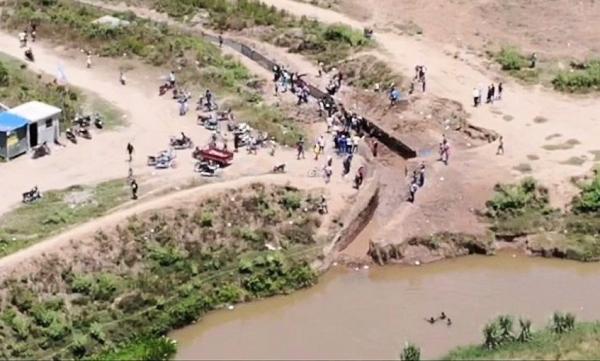Mounting water conflict between Dominican Republic and Haiti
28 Sep 2023 by The Water Diplomat

On the 11th of September the President of the Dominican Republic, Luis Abinader suspended visas for Haitians and threatened to close the border between the two countries following a water conflict between the two countries. By the 18th of September the Dominican Republic indeed shut all land and sea borders with Haïti. This follows reports that Haiti was planning to construct a canal that would divert water from the Dajábon River in order to alleviate the consequences of a drought on Haïti’s Maribaroux Plain. The initiative to construct the canal is spearheaded by local groups which have formed a collective to enable the irrigation of some 3000 hectares of land, reportedly also in a reaction to a sentiment that Haïtian government has been unresponsive to their needs.
The Dajábon River, shared by the two countries, rises in the Central Cordillera – the highest mountain range in the Dominican Republic – and it forms the northern part of the border between Haïti and the Dominican Republic. The two countries are bound by a treaty which commits them to discuss issues related to the use of the Dajábon and Pedernales Rivers, to which both countries are riparian.
The treaty, known as the Tratado de Paz, Amistad y Arbitraje (Treaty of Peace, Friendship, and Arbitration) is a general accord outlining the friendship and peaceful relations between the two countries. It has existed for almost a century: it was signed by the Dominican Republic and the Republic of Haiti on Feb. 20, 1929. On the topic of water, Article 10 establishes that “because rivers and other watercourses arise in the territory of one State and flow through the territory of the other or serve as boundaries between the two States, both High Contracting Parties undertake not to carry out or consent to any work likely to change the stream of those or altering the product of their sources”. The article further states that the provision may not be interpreted in the sense of depriving either of the two States of the right to use, in a fair and equitable manner, within the limits of their respective territories, said rivers and other water courses for the irrigation of the lands and other agricultural and industrial purposes.
In 2021, investors and landowners in Haïti decided to build a canal which would divert water from the Dajábon River, resulting in opposition from the Dominican Republic, where it was feared that the canal would take 100% of the water from the river. Following political pressure from the Dominican Republic, the project was shelved, but the plans to construct the canal have now reemerged, leading to renewed tensions between the two countries. The government of Haïti nevertheless announced that it would continue to build the canal in spite of the measures taken by the Dominican Republic.
On the 21st of September, President Abinader spoke before the 78th United Nations General Assembly to defend the measures his government has taken against its neighbour. In parallel, the UN expert on Haiti, William O’Neill, urged the government to reconsider the closure of the border, stating that the border closure would have serious impacts on people on both sides of the border and that directors of medical clinics in Haïti had informed him that the border closure would negatively impact upon their ability to treat patients.
